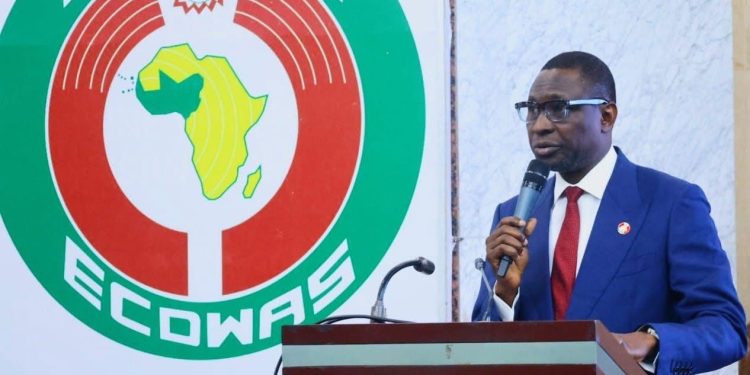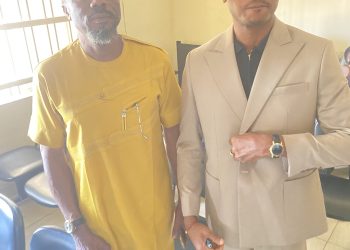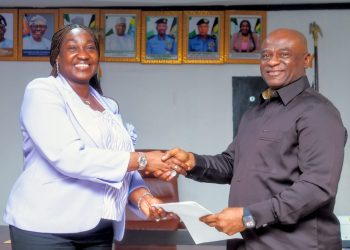…as West African Anti-Graft Chiefs Adopt ECOWAS Guidelines on Cross-Border Asset Recovery
By Nkechi Eze
The Network of Anti-Corruption Institutions in West Africa (NACIWA) has re-elected the Executive Chairman of the Economic and Financial Crimes Commission (EFCC), Mr. Ola Olukoyede, as its President, while ratifying the adoption of the ECOWAS Guidelines on Borderless Investigation, Asset Tracing, Recovery, and Management.
The re-election and ratification were among the major highlights of the 7th Annual General Assembly (AGA) of NACIWA held in Abuja on Wednesday, October 15, 2025, with representatives of all ECOWAS member states in attendance.
According to a statement signed by EFCC spokesperson, Dele Oyewale, the communique issued at the end of the meeting commended Mr. Olukoyede for his outstanding leadership and commitment to strengthening regional collaboration in the fight against trans-border economic and financial crimes.
The EFCC Chairman and other members of the NACIWA Executive Committee, who had successfully completed their first tenure, were unanimously returned to office through what the communique described as a “consensus renewal of their mandates,” reflecting the confidence of member institutions in their performance and dedication. Their renewed tenure will last for another three years.
The Assembly also “noted with satisfaction” the formal adoption of the ECOWAS Guidelines on Borderless Investigations, Asset Tracing, Recovery, and Management, urging all member states to domesticate the guidelines within their national frameworks to ensure harmonized implementation across the region.
The communique further reaffirmed NACIWA’s commitment to the 2001 ECOWAS Protocol on the Fight against Corruption, the United Nations Convention against Corruption (UNCAC), and the African Union Convention on Preventing and Combating Corruption (AUCPCC). It underscored the need for stronger regional cooperation in asset recovery, mutual legal assistance, and information sharing among anti-corruption agencies.
Member institutions were encouraged to deepen coordination with national financial intelligence units and law enforcement agencies to enhance operational synergy and effectiveness in combating economic crimes that transcend borders.
The Assembly also emphasized the importance of collaboration with civil society organizations (CSOs), youth groups, and the media in advancing anti-corruption advocacy and promoting public participation in governance accountability across West Africa.
In a symbolic reflection of regional progress, the 7th AGA coincided with the commemoration of 50 years of ECOWAS. Delegates described the milestone as a testament to the subregion’s resilience and renewed commitment to unity, security, and economic integration. The communique called on member institutions to intensify efforts to domesticate and operationalize the ECOWAS Protocol on corruption within their national legal systems to align with regional commitments.
The Assembly expressed deep appreciation to Nigeria’s President, Bola Ahmed Tinubu, for his steadfast support for the anti-corruption cause and for formally declaring the Assembly open on Tuesday, October 14, 2025.
While inaugurating the AGA, President Tinubu called on ECOWAS to recognize and designate resource theft—particularly illegal mining and mineral smuggling—as an international crime. He warned that the menace poses a grave threat to regional peace, stability, and economic prosperity.
“The time has come for ECOWAS to designate resource theft, illegal mining, and the stealing of minerals as an international crime that threatens the stability of the region, and galvanize the world against trade in stolen minerals from West Africa,” President Tinubu declared.
The 2025 NACIWA Assembly also expanded its membership by admitting new institutions, including Nigeria’s Code of Conduct Bureau (CCB), while welcoming the participation of CPC Cabo Verde as a new member.
With the re-election of Mr. Olukoyede and the ratification of new operational guidelines, the Assembly reaffirmed its collective determination to strengthen anti-corruption frameworks, enhance cross-border cooperation, and uphold transparency, accountability, and good governance across the ECOWAS subregion.















